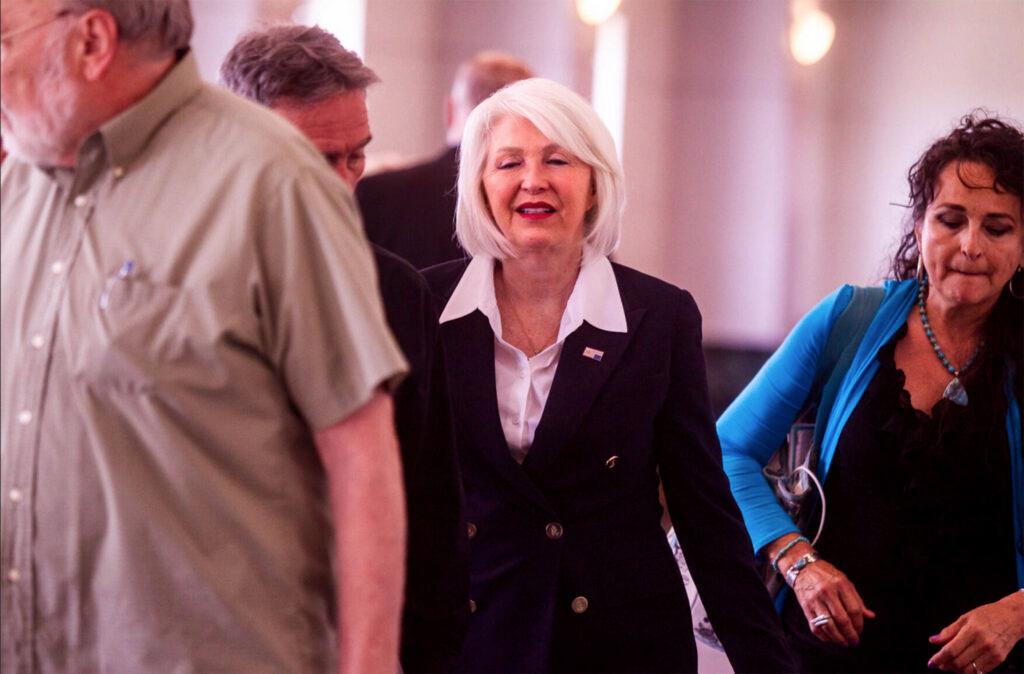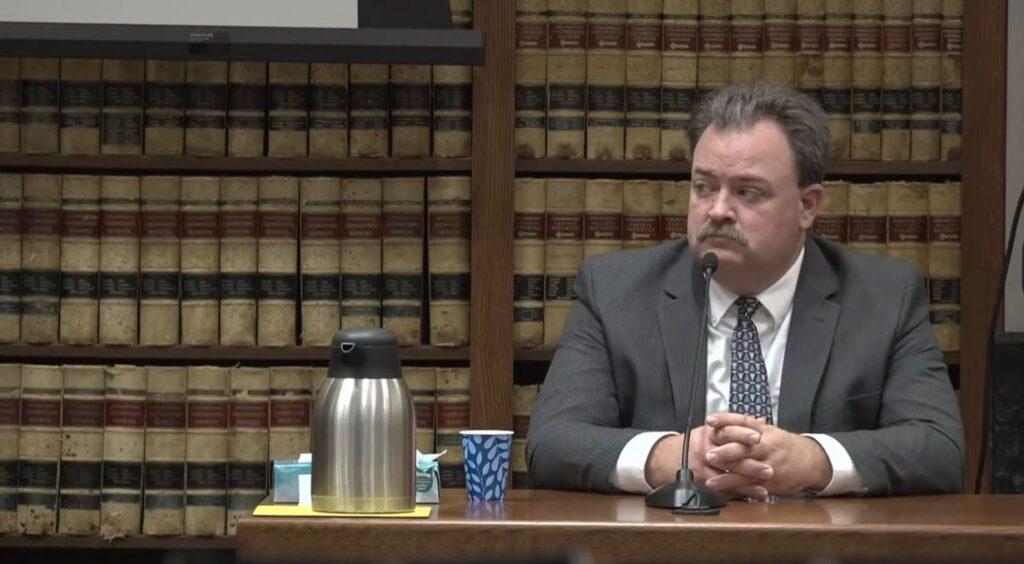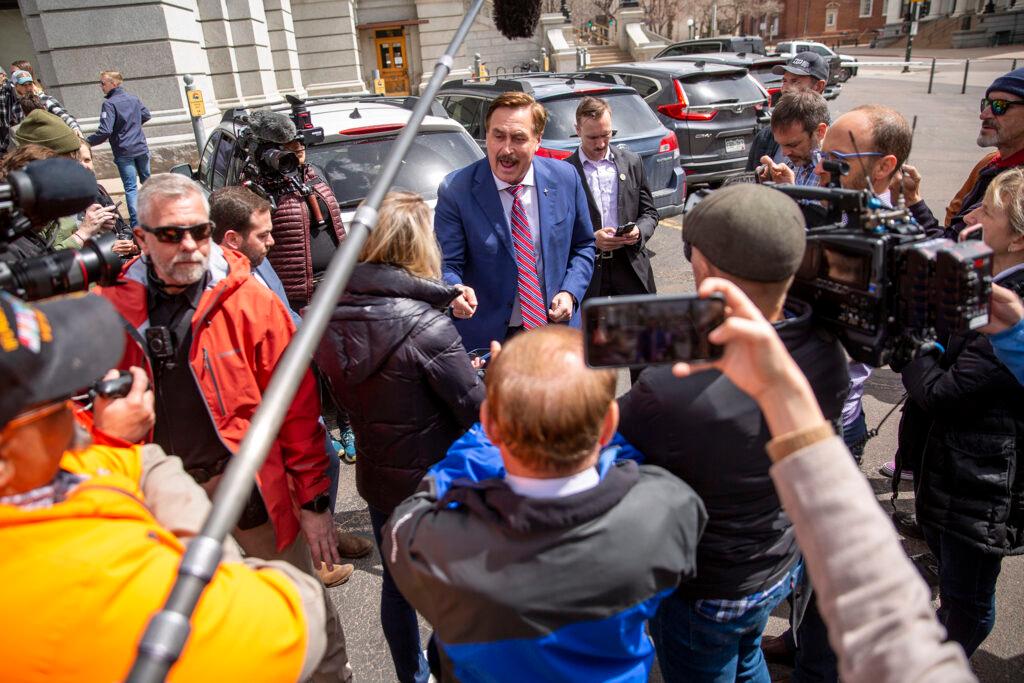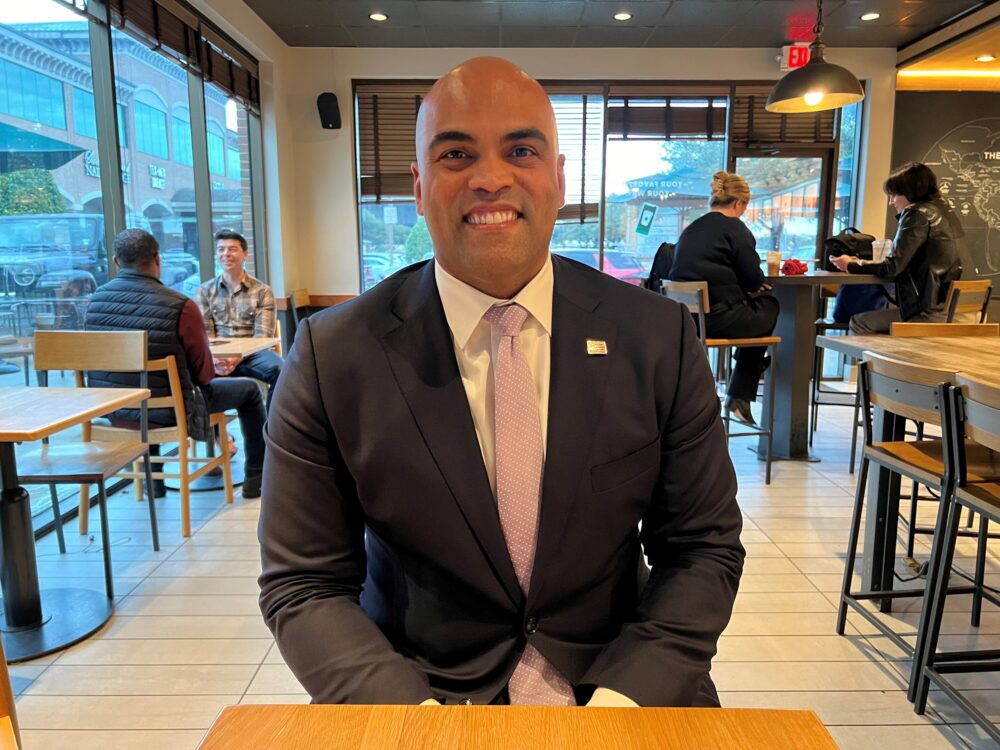The commentator has called the star a bad sport, an “elite snob” and much more over the years.
Taylor Swift and Megyn Kelly
Gilbert Flores/Golden Globes 2024; Ivan Apfel/Getty Images
Taylor Swift has never publicly addressed Megyn Kelly, but that hasn’t prevented the pop superstar from pushing the conservative commentator’s buttons.
As Swift has become more politically involved in the latter years of her career, frequently aligning herself with liberal politicians and the Democratic party, Kelly — whose own political views are diametrically opposed to the “Anti-Hero” singer’s — has made her disapproval clear on more than one occasion. The Fox News alum has also taken issue in the past with Swift and Kansas City Chiefs tight end Travis Kelce’s relationship, be it the frequency with which news networks cover their romance or the couple’s actions that led Kelly to deem them “elite snobs.”
But while Swift is one of Kelly’s go-to topics of discussion in the music world, she isn’t the only artist who’s grabbed the Megyn Kelly Show host’s attention. Kelly has also come after everyone from Katy Perry — for posting an edited version of Chiefs kicker Harrison Butker’s controversial commencement speech at Benedictine College — to Usher over his 2024 Super Bowl Halftime Show performance and Zach Bryan for, ironically, walking back on his claim that Ye (formerly Kanye West) is better than Swift in a since-deleted tweet.
Even so, Swift is one artist in particular about whom Kelly has had a lot to say. Whether you’re looking to reminisce on a chronological history of the anchor’s issues with the pop star or checking back for updates as they unfold, keep reading to see Billboard‘s timeline of their one-sided beef below.
-
October 2023: Megyn Says She’s “So Done” With Tayvis
Though countless fans were over the moon when Swift and Kelce went public with their romance in fall 2023, Kelly wasn’t as enthused. “I’m over it,” she ranted during a virtual interview with Sky News Australia that October. “I don’t care. I’m so done.”
“It’s not their fault entirely,” Kelly continued. “It’s really the fault of the NFL and our disgusting, perverted media that has decided to make them into the next, what, Diana and Charles? It’s absurd. They are covering them like they are two world leaders on whose every move we must hang. Our obsession here in America with celebrity is so unattractive. It’s so unbecoming of us.”
“I hope things work out with them, but it’s not going to,” she added. “Hope that they’re super happy, but they’re not going to be.”
-
December 2023: Megyn Slams Taylor for Attending Comedy Show Fundraiser for Gaza
After Swift attended Ramy Youssef’s stand-up comedy show in Brooklyn, New York — an event that doubled as a fundraiser for humanitarian relief in Gaza amid the ongoing Israel-Hamas war — Kelly had some thoughts to share during an episode of her show.
In addition to claiming that Swift “owes Israelis and Jewish Americans an apology,” Kelly called for fans to boycott the singer. “I hope they boycott her events until she issues it because attending this thing was wrong,” she said before directly addressing the singer: “You clearly know nothing.”
-
January 2024: Megyn Says Taylor Wasn’t a “Good Sport” at Golden Globes
One of the most talked-about moments at the 2024 Golden Globes was host Jo Koy’s poorly received joke about the pop star during his opening monologue. “The big difference between the Golden Globes and the NFL? At the Golden Globes, we have fewer camera shots of Taylor Swift,” the comedian joked at the time, after which cameras cut to a stony-faced Swift taking an unenthused sip of her drink.
Shortly afterward, Kelly took to her Sirius XM show to share her thoughts on Swift’s reaction. “Can’t she just, like, show that she’s a good sport? I think she made the wrong move,” the commentator said. “By the way, she’s not in charge with the number of times the NFL chooses to put her on cam. That’s not her fault.”
For what it’s worth, Koy later conceded that his quip was “a weird joke,” and argued that “it was more of a jab toward the NFL. But it just didn’t come out that way.”
-
September 2024: Megyn Calls Taylor & Travis “Elite Snobs”
Kelly did not take kindly to Swift’s endorsement of Kamala Harris in the 2024 presidential election. After the pop star wrote that she’d be voting for the Democratic ticket in a post calling the VP a “steady-handed, gifted leader” who “fights for the rights and causes I believe need a warrior to champion them,” the conservative commentator fired back on her YouTube show.
“F you, Taylor Swift,” Kelly said, calling the Grammy winner and Kelce the “epitomes of elite snobs,” before declaring that she was “allowed to criticize Taylor Swift, and I don’t give a s–t who gets upset. This is disgusting.”
“They both have gazillions of dollars,” continued Kelly, who previously cited vaccine misinformation as a reason to criticize the football player’s participation in a Pfizer COVID-19 booster shot campaign. “She doesn’t care what happens to these kids, just like he [Kelce] doesn’t give a s–t what happens to all the young men who take the Pfizer booster he’s been pushing on them.”
Source link









